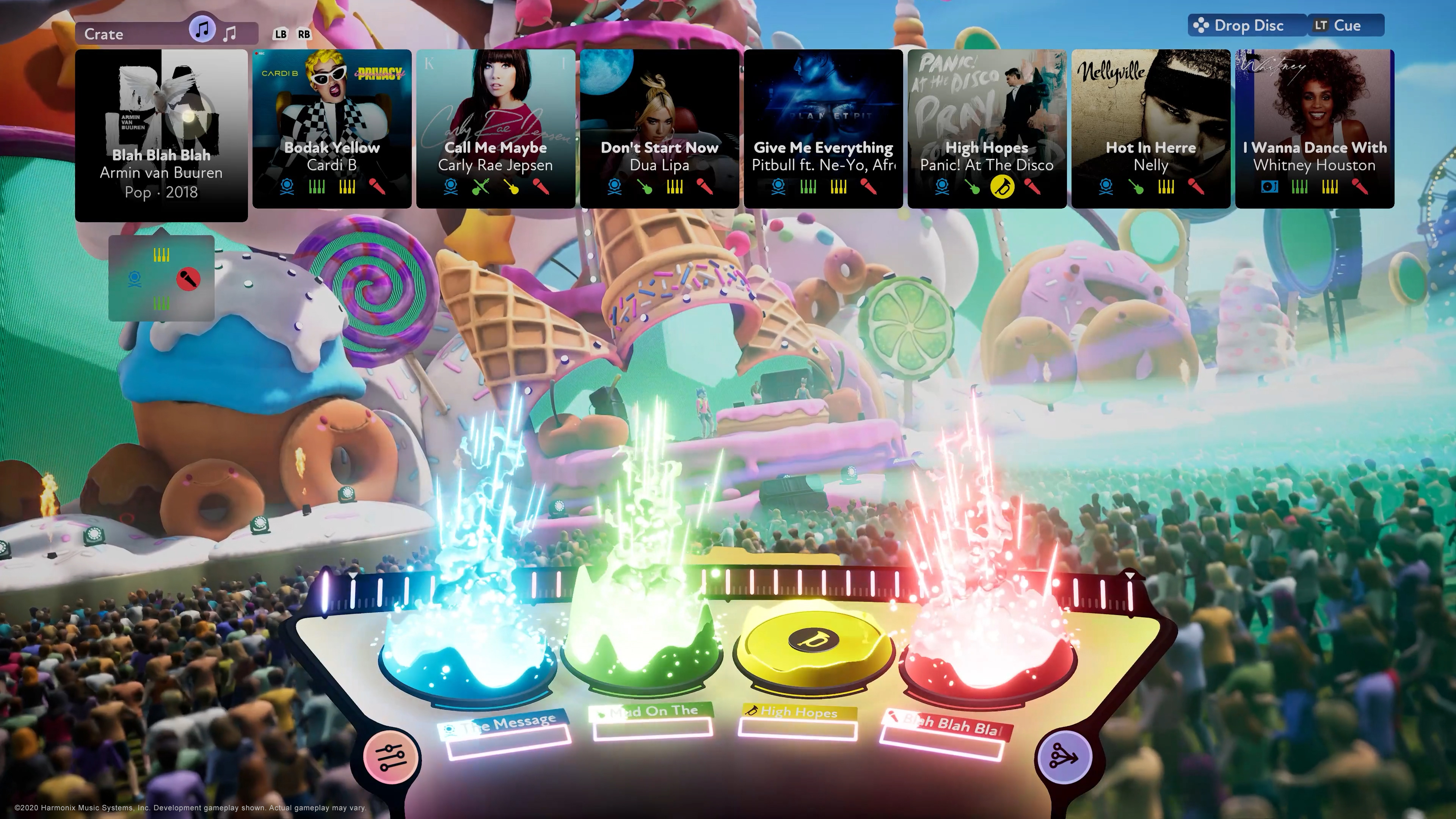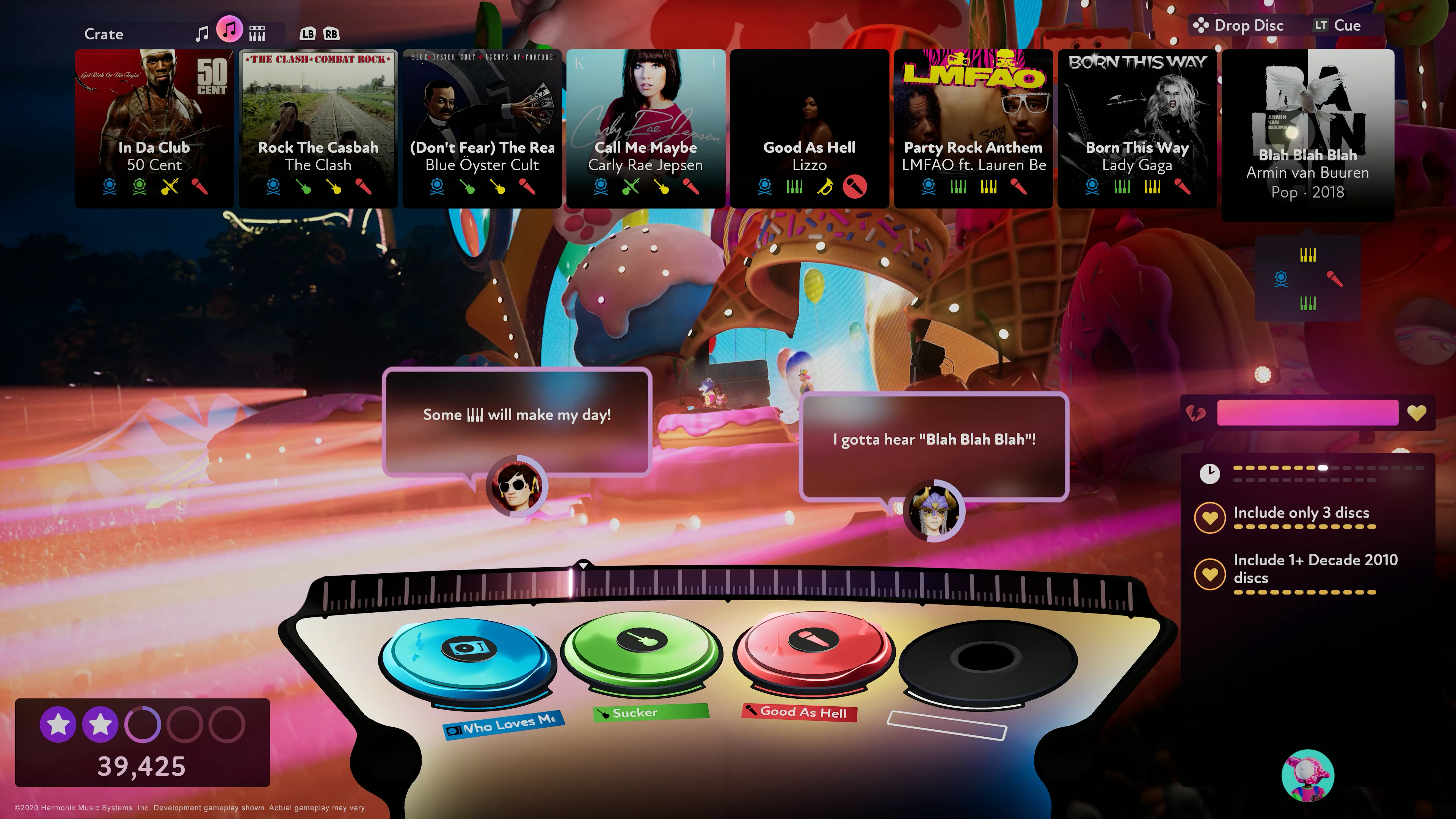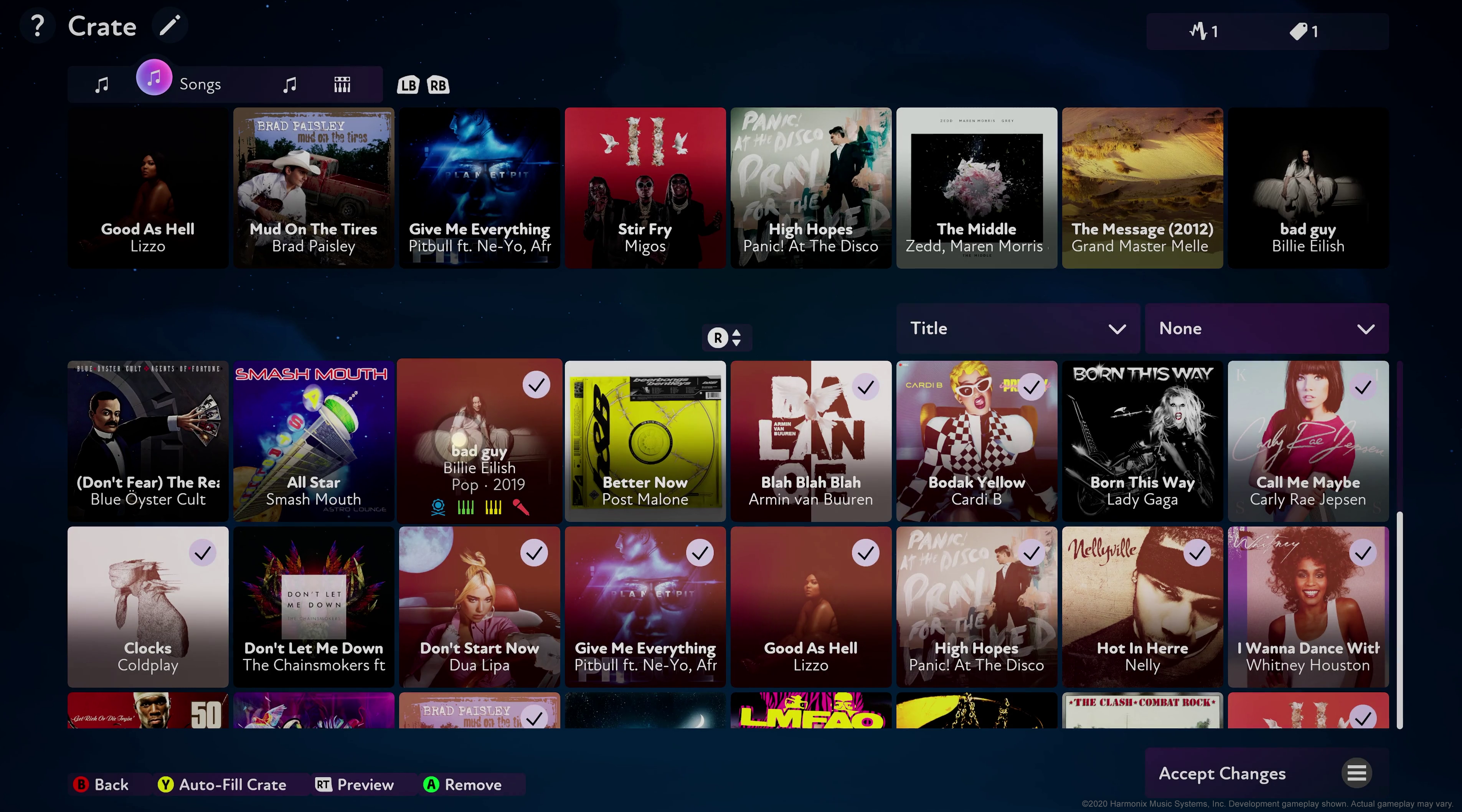Fuser is a DJ video game that can fill the festival-shaped hole in your life
Fuser feels like a music festival

On the one hand, Fuser is just a video game, and can’t make up for an entire year of missed music festivals. On the other hand, Fuser is exactly what people love about festivals, distilled down to digital form. You’ve got the roaring crowds, the blazing pyrotechnics and the pulsing music. But this time around, you’re the one in charge. Fuser challenges you to produce your own musical mashups, but there’s a substantial game surrounding this creative central concept.
I met with Harmonix representatives via Zoom to get a live gameplay demo of Fuser. While I played the game before at PAX East, that demo was a pretty short tutorial level. This time, I saw three mixing experiences: an early campaign level, a later campaign level and the game’s freestyle mode — where I expect a lot of amateur electronic musicians will spend the bulk of their time.
- PS5 release date, price, controller, pre-order and more
- Xbox Series X release date, price, pre-order, controller and more
- Plus: PS5 price leaks for both consoles — and it won’t be cheap
Fuser campaign

In Fuser, you play as a DJ on the music festival circuit. Each set you spin requires four discrete musical parts: percussion, bass, main instrument and vocals. There are more than 100 songs from which to choose, and the game will automatically sync them up, meaning that whatever you mix will be tonally and rhythmically consistent. (Whether it sounds “good” is up to you, but I’ve now spent a few hours with the game, and I haven’t encountered something that sounds “bad” yet.)
In the game’s freestyle mode, you can spin whatever song in whatever slot you want as you try to isolate the perfect dance soundtrack. But in the campaign, you’ll have to accommodate audience requests in real-time, and the audience constantly wants new music. They’ll ask for specific genres in specific parts — vocals from a rock song, or a piano instrumental part, for example. But you can’t just drop in new music whenever they ask; you have to time it to an upbeat or a downbeat. When you’re trying to balance multiple requests before your audience gets bored and gives up, things can get complex, fast. The challenge in Fuser is about learning the ins and outs of your favorite tracks, so that you have something ready to go for every potential request.
While aspiring songsmiths will probably want to dive right into Fuser’s freestyle mode, let’s discuss the campaign first. Rhythm game campaigns always run the risk of getting in the music’s way rather than facilitating it, but Fuser’s approach seems pretty sensible. As in Harmonix’s Guitar Hero series, you’ll start off playing backup at small events, and eventually working your way up to headlining huge festivals. The “story” conceit is that at each venue, you’ll have a different promoter, each of whom has a unique style when it comes to attracting fans and producing music.
Harmonix showed me two different campaign levels, and the core gameplay was almost identical in both cases. Before the show, you choose a dozen or so of your favorite songs, or let the game recommend a setlist for you. During the show, you spin a long, evolving piece of music that changes frequently as you accommodate fan requests. In the first level, the main challenge was dropping new tracks on the downbeat before the window expired on fan requests. In the second level, however, things got much more complicated.
In later levels, you can manipulate the rhythm and tonality of each new track manually. In addition, you can create your own synth patterns, and each song has more than a dozen potential patterns to employ. You need to sample, create and deploy these patterns in real time, adding yet another ticking clock element. When it’s running on all cylinders, Fuser is a gigantic juggling act. The upside, however, is that the game is not punishing, and everything you do will earn you resources for more in-game goods.
Sign up to get the BEST of Tom's Guide direct to your inbox.
Get instant access to breaking news, the hottest reviews, great deals and helpful tips.
Fuser customization

Fuser isn’t exactly like the Guitar Hero and Rock Band franchises that Harmonix pioneered in the early and mid-2000s. Instead of a ton of different songs to master, it offers a smaller amount of levels with way more potential for variation. As such, you’ll want to replay each level a number of times — and you’ll want a reward each time you do.
Enter XP, which you earn for each set, and which lets you unlock a ton of customization options. You can collect new songs, sure, although you’ll also get some of those just by progressing through the campaign naturally. But you can also unlock body types, hairstyles, shirts, pants, hats, shoes and even “attitudes,” which determine how your DJ carries him or herself onstage. Like Rock Band, you can make anything from an ordinary DJ who walked in off the street, to an outlandish maestro who wandered in from a sci-fi convention.
Doing things your own way is a big part of Fuser’s appeal, especially since the game doesn’t restrict itself to traditional “DJ” genres. You’ll get plenty of pop and hip-hop, sure, but the game also includes dance, rap, rock, Latin, country and R&B tracks. You can combine these any way you want — and you’re not restricted to the “percussion, bass, instrument, vocals” formula that the campaign often demands. If you want to see how four different vocals mash up, or would prefer something instrumental for background vibes, you can experiment with any format you want. For the most part, this is what the game’s Freestyle mode facilitates.
The question, of course, is whether amateur songsmiths will be able to share their creations with the world. Harmonix is aware that customization is a big part of Fuser’s appeal, and explained that users will be able to share their mixes for free within the game’s community. But users who want to monetize the content — streamers, for example, or someone looking to sell a mix — may run up against much thornier legal issues. The game itself will probably lay down some ground rules, but expect both some freedom and some restrictions when it comes to song-sharing.
Harmonix reps explained that while 2020 has been a challenging year overall, a game like Fuser might help fill the void from canceled concerts and music festivals. Music and dancing are pretty central to the whole human experience. While a game can’t quite replicate the intensity, camaraderie or, well, weirdness of a Burning Man or a Glastonbury, Fuser can at least recapture the reason why we love the music in the first place.
Marshall Honorof is a senior editor for Tom's Guide, overseeing the site's coverage of gaming hardware and software. He comes from a science writing background, having studied paleomammalogy, biological anthropology, and the history of science and technology. After hours, you can find him practicing taekwondo or doing deep dives on classic sci-fi.

